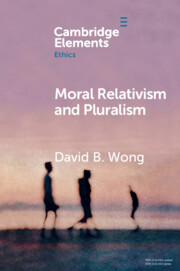Element contents
Moral Relativism and Pluralism
Published online by Cambridge University Press: 06 January 2023
Summary
- Type
- Element
- Information
- Series: Elements in EthicsOnline ISBN: 9781009043496Publisher: Cambridge University PressPrint publication: 02 February 2023
References
- 8
- Cited by

